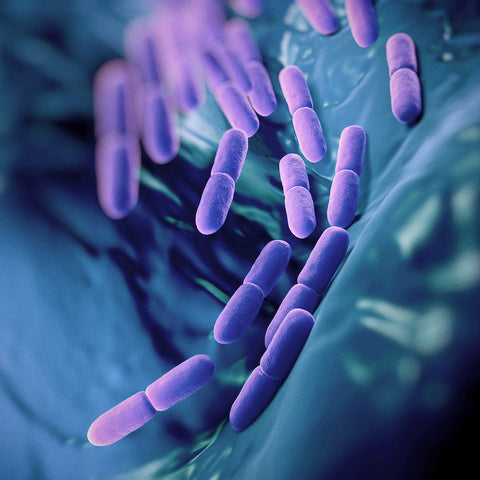
Good Gut Bacteria
Probiotics
Probiotics are live microorganisms, primarily beneficial bacteria and some yeasts, that are ingested to provide health benefits when they colonize the gut and interact with the body's microbiome. These "good" bacteria are similar to the beneficial microorganisms naturally found in the human digestive system. Probiotics can be found in various forms, such as supplements or fermented foods like yogurt, kefir, sauerkraut, and kimchi. They are known for their potential to support digestive health, boost the immune system, and promote a balanced gut microbiome. Probiotics may also have a role in managing specific health conditions, such as diarrhea, irritable bowel syndrome (IBS), and allergies, though their effectiveness can vary depending on the strains and dosage used.
How Probiotics Works & It's Benefits
Here's how probiotics function and contribute to health:
- Gut Health and Microbiome Balance: Probiotics help maintain a healthy balance of gut bacteria. This balance is crucial for efficient digestion, nutrient absorption, and a functioning immune system. They can help restore the natural balance of gut flora that can be disrupted by factors like antibiotic use, poor diet, or illness.
- Digestive Function: Probiotics are known to alleviate many digestive disorders. They can help manage symptoms of irritable bowel syndrome (IBS), inflammatory bowel disease (IBD), and diarrhea caused by infections or antibiotic use.
- Immune System Support: A significant part of the body’s immune system is located in the gut. Probiotics can enhance immune function by inhibiting the growth of harmful gut bacteria and promoting the production of natural antibodies. Some strains can also boost immune cells like the IgA-producing cells, T lymphocytes, and natural killer cells.
- Mental Health Benefits (Gut-Brain Axis): Emerging research suggests a link between gut health and brain function, known as the gut-brain axis. Probiotics may have benefits for mental health, potentially helping with conditions like depression, anxiety, and stress.
- Heart Health: Certain probiotics may help lower LDL ("bad") cholesterol levels and blood pressure. They can do this by breaking down bile in the gut, preventing it from being reabsorbed into the bloodstream as cholesterol.
- Allergies and Eczema: Some probiotics may reduce the severity of allergies and eczema. Certain strains are particularly beneficial for infants and children in reducing the risk of eczema.
- Weight Management: Some types of probiotics have been found to aid in weight loss and reducing belly fat. This is possibly due to their ability to influence appetite and energy usage.
- Women’s Health: Probiotics can be beneficial in maintaining vaginal health. They can help prevent urinary tract infections (UTIs), bacterial vaginosis, and yeast infections by maintaining a healthy balance of microorganisms in the vaginal area.

